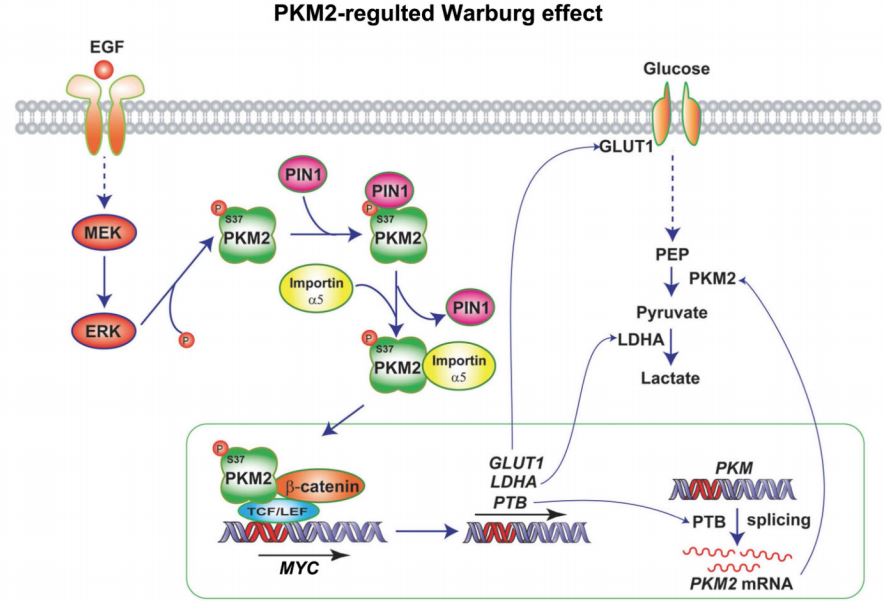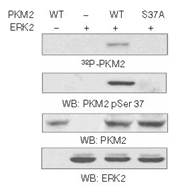New cancer metabolism antibodies
New cancer metabolism antibodies
Hsinchu Taiwan, Sept 16, 2014: arigo biolaboratories Corp., a global company offering smart solutions of antibodies and services, announced today it has launched a new range of PKM antibody product line for the study of cancer metabolism.

NATURE 2014, VOL 508 p.159
“These are good days for studying metabolism, and it’s very interesting biology that’s been neglected for over 30 years.” said Nissim Hay, a cancer biologist, at the University of Illinois in Chicago AACR 2014.
Cancer cells metabolize glucose by aerobic glycolysis to obtain the energy and cancer building blocks in order to support their rapid proliferation. It is different from the normal cells where they metabolize through the oxidative phosphorylation glycolysis pathway. This phenomenon was identified as Warburg effect.
The metabolism transition is partly achieved by two differentially spliced isoform of the glycolysis enzyme, Pyruvate Kinase. Normal cells express pyruvate kinase isoform M1 (PKM1) during glycolysis. However, cancer cells preferentially express the less efficient M2 isoform (PKM2), leading to higher rate of proliferation. This research is significant, as PKM2 has since become a target for cancer therapy.
In addition, in 2012, Yang et al., reported that PKM2, but not PKM1, can be phosphorylated at Ser37 by ERK2 through the activation of EGF Receptor. The phosphorylated PKM2 translocates to nucleus and act as a coactivator of beta catenin to induce c-myc expression and results in PKM2-dependant GLUT1, LDHA and PTB upregulation. In conclusion, the levels of PKM2 Ser37 phosphorylation might play an important role in Warburg effect and tumorigenesis.
Nat Cell Biol. 2012, 14(12): 1295
arigo is proud to provide a complete PKMs antibody product line including PKM1 antibody (ARG51402), PKM2 antibody (ARG61996), PKM1/2 antibody (ARG51336) and PKM2 phospho Ser37 antibody (ARG51804), to assist researchers in studying the function of PKM2 as well as its potential role in the cancer therapeutic.






